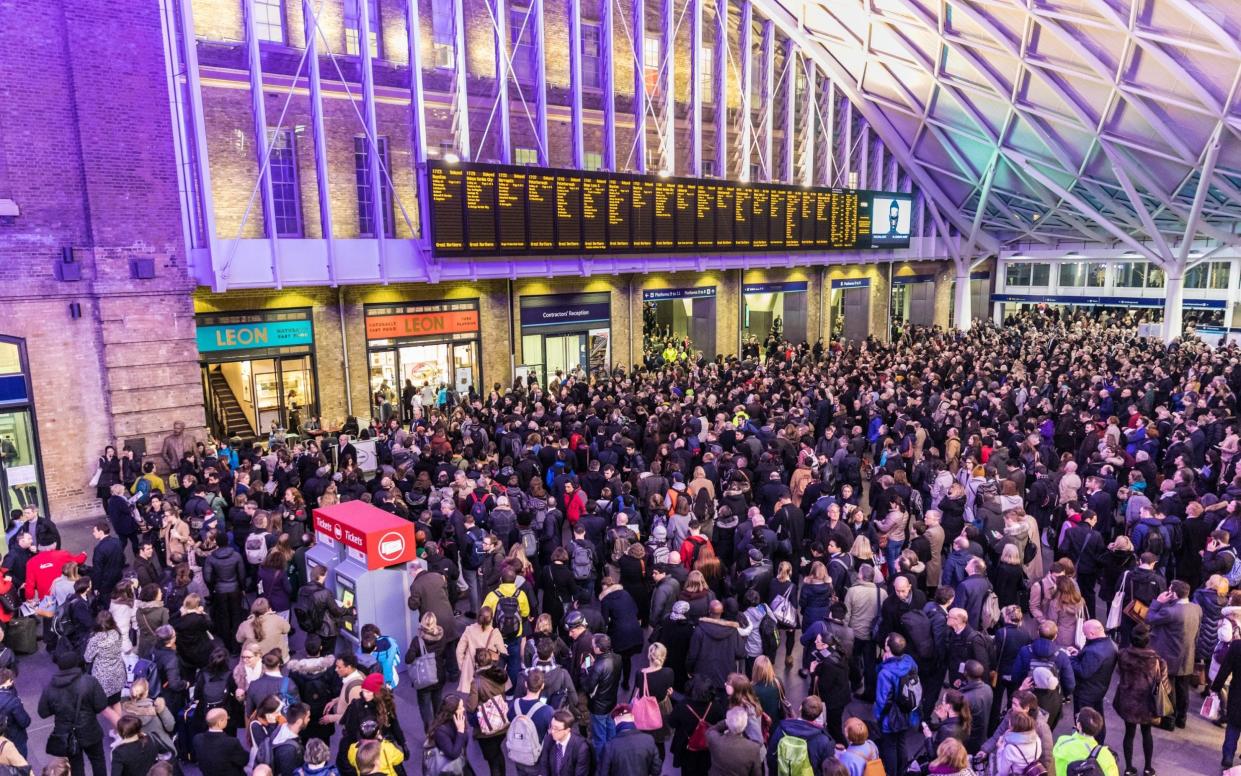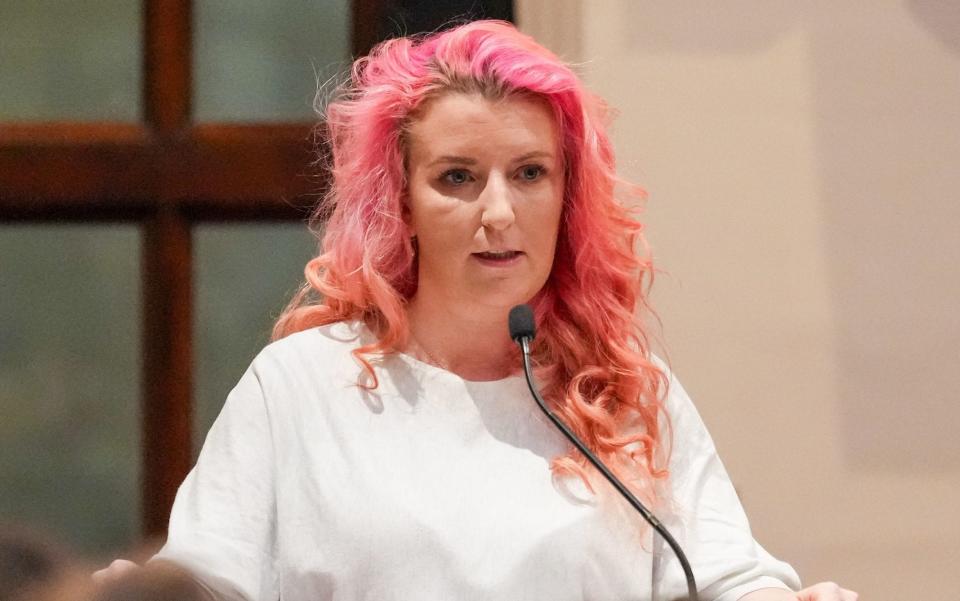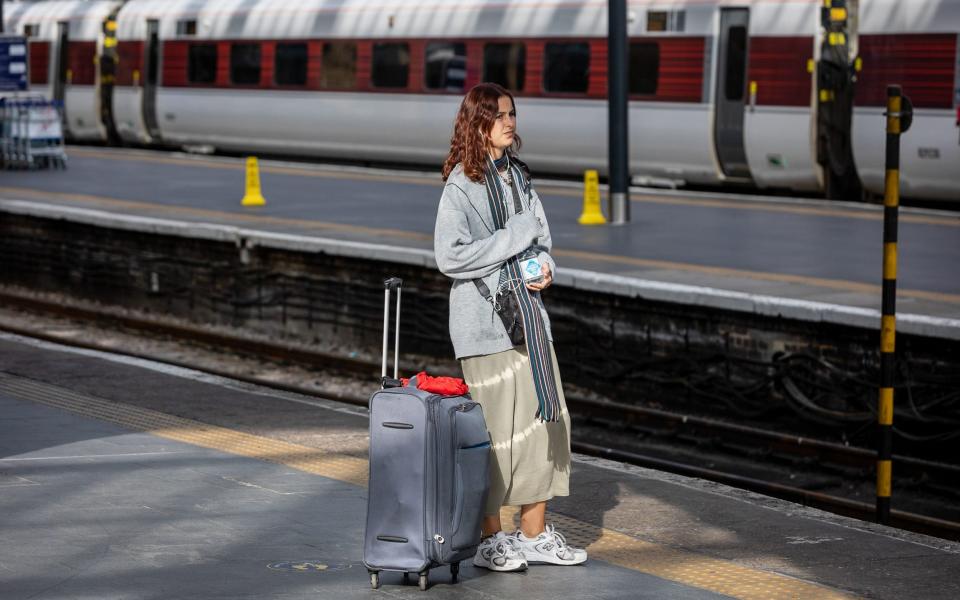Labour pledges to get rail network ‘back on track’

- Oops!Something went wrong.Please try again later.
Train passengers would be automatically refunded for delayed journeys under Labour plans to nationalise the railways.
Shadow transport secretary Louise Haigh is expected to announce on Thursday that her party will bring trains into state ownership within five years if it wins the general election.
Labour also plans to use mobile phone apps to automate the existing delay repay scheme, which lets passengers claim refunds for rail journeys delayed by more than 15 minutes.
Travellers will also be given a “best-price ticket guarantee” if they use a government-approved app to buy fares.
The aim is to stop passengers from needlessly paying too much for fares bought from individual operators and third-party websites.

Ms Haigh, who is launching the policy in a speech at Trainline’s London HQ on Thursday morning, will say: “Labour will deliver the biggest overhaul to our railways in a generation.
“While the Conservatives are content to let Britain’s broken railways fail passengers, Labour will deliver root and branch reform.
“Labour’s detailed plans will get our railways back on track; driving up standards for passengers, bringing down costs for taxpayers, driving growth and getting Britain moving.”
Nationalising the railways would unpick John Major’s reforms of the 1990s, under which private operators took over the running of trains from the state monopoly, British Rail.
Labour claimed the country’s 16 private railway operators can be brought under full state control “without the taxpayer paying a penny in compensation costs”.
An automatic delay repay scheme would cover about 35 million journeys per year.
Just under 2.5 per cent of all trains were delayed by more than 15 minutes in the three months to March, according to Office of Rail and Road figures, making them eligible for the delay repay scheme.
Delay repay works on a sliding scale, with journeys delayed by up to half an hour resulting in a 25 per cent refund.
Passengers delayed by more than an hour are entitled to a full refund.
Labour said its ticket price guarantee would further shore up travellers’ confidence in the railways.
The party wants ticket apps to allow passengers to touch in and out of journeys - like London’s Oyster system on the Underground - calculating the lowest total fare.
This would simplify the country’s complicated fare system.
There are 55 million different fares across the network, according to the Rail Delivery Group.

The Tories attempted to tackle the problem in 2021 when Grant Shapps announced plans for a state-backed train tickets website.
This caused privately-owned rival Trainline’s share price to crash by 34 per cent.
But Transport Secretary Mark Harper scrapped those plans last December to focus on working with the private sector, with the Department for Transport saying it wanted to “spur further competition in the online rail ticket retail market to make things better for passengers”.
Ms Haigh told The Telegraph: “A modern transport system should be the backbone of a growing economy and public services fit for the future.
“But years of Conservative chaos on our railways is holding Britain back.”
Other reforms announced by Labour include the creation of a new public sector body named Great British Railways and a watchdog, the Passenger Standards Authority, to hold GBR to account.
Under the party’s proposals the current fixed-term contracts with private rail operators will be handed to the state as they expire.
Rail industry sources reacted with dismay to the nationalisation plans and raised concerns that the changes would lead to tax rises for the public.
Andy Bagnall, chief executive of trade association Rail Partners, said: “Train companies agree that change is needed for the railways, but nationalisation is a political rather than a practical solution which will increase costs over time.
“Creating a thriving railway for customers and taxpayers does not have to be an ideological choice between a monopoly railway in public hands and one that delivers private investment and innovation through franchising.”
Steve Norris, a former transport minister in John Major’s government, said: “This sets us back prior to the 1990s. You’ll then have a railway running as badly as the one that Jimmy Savile used to be in the adverts for.”
‘Their ideological ideas won’t improve things’
A government source said: “Labour can’t explain how they’re going to pay for the costs of their pointless plan to nationalise rail.
“Their ideological ideas won’t improve things for passengers and, with many unanswered questions around how they’ll pay for their plan, means taxes will go up for working people - taking us back to square one.”
Others, including rail and transport organisations, welcomed Labour’s plans.
Paul Tuohy, chief executive of the Campaign for Better Transport, said: “We’re pleased to see Labour laying out ambitious plans for the railways which promise to put passengers first.”
He was joined by Mary Grant, boss of rolling stock provider Porterbrook, who said: “We welcome the Labour Party’s commitment to leverage private capital to help deliver its long-term strategy for rolling stock.”
Four train companies are already run by the Department for Transport, while passenger train operators alone consumed £12 billion in public subsidies last year.

